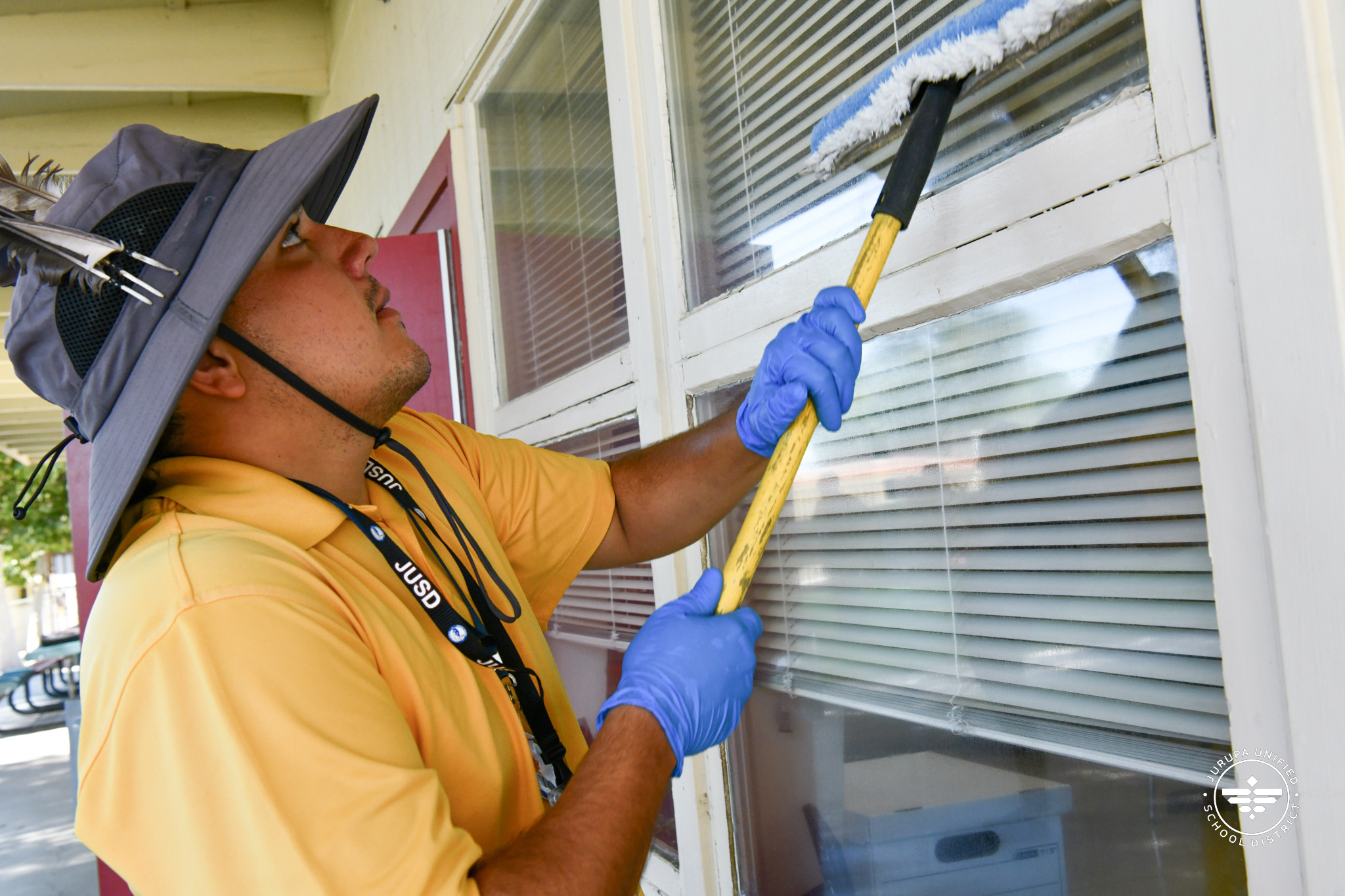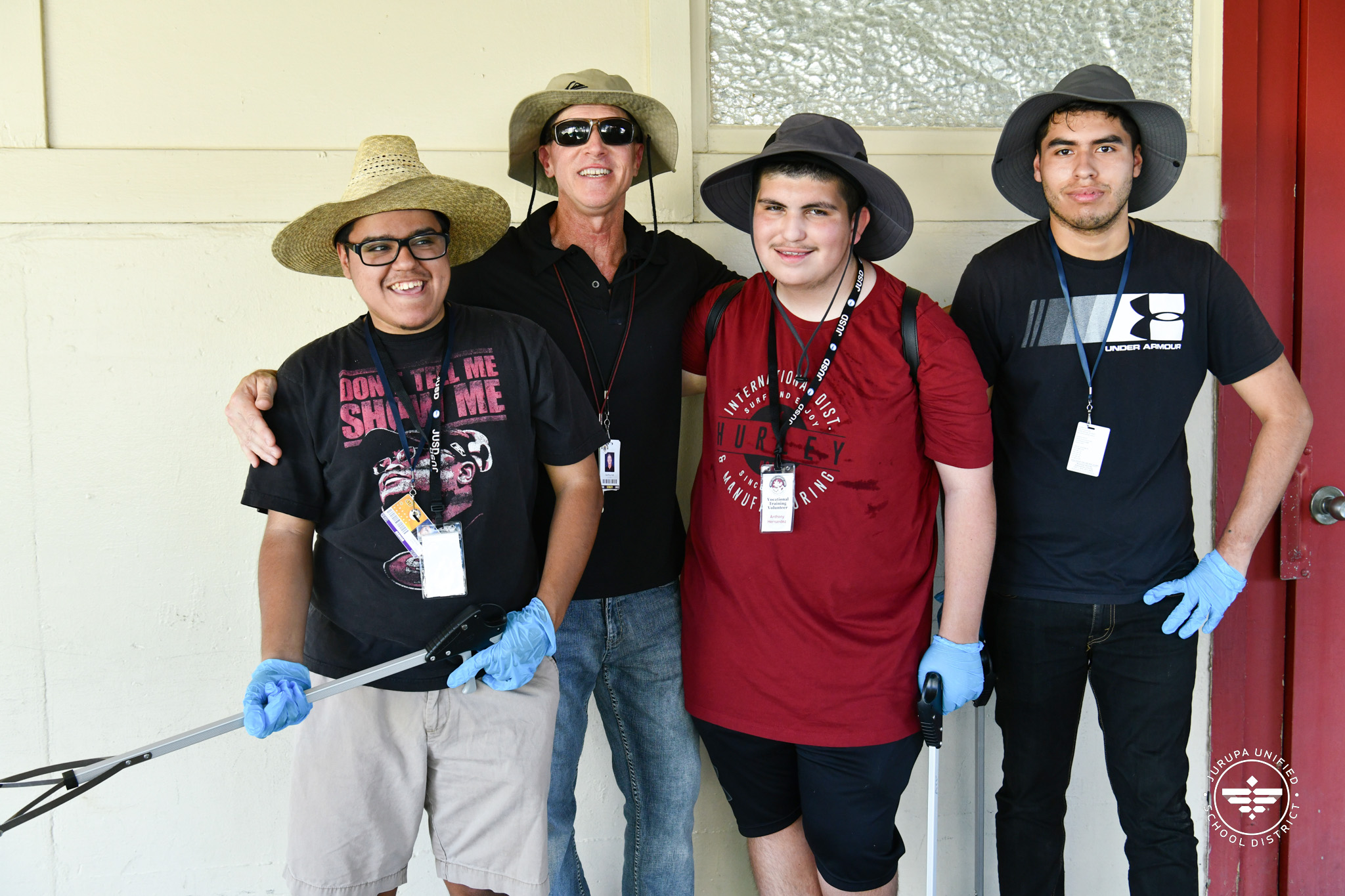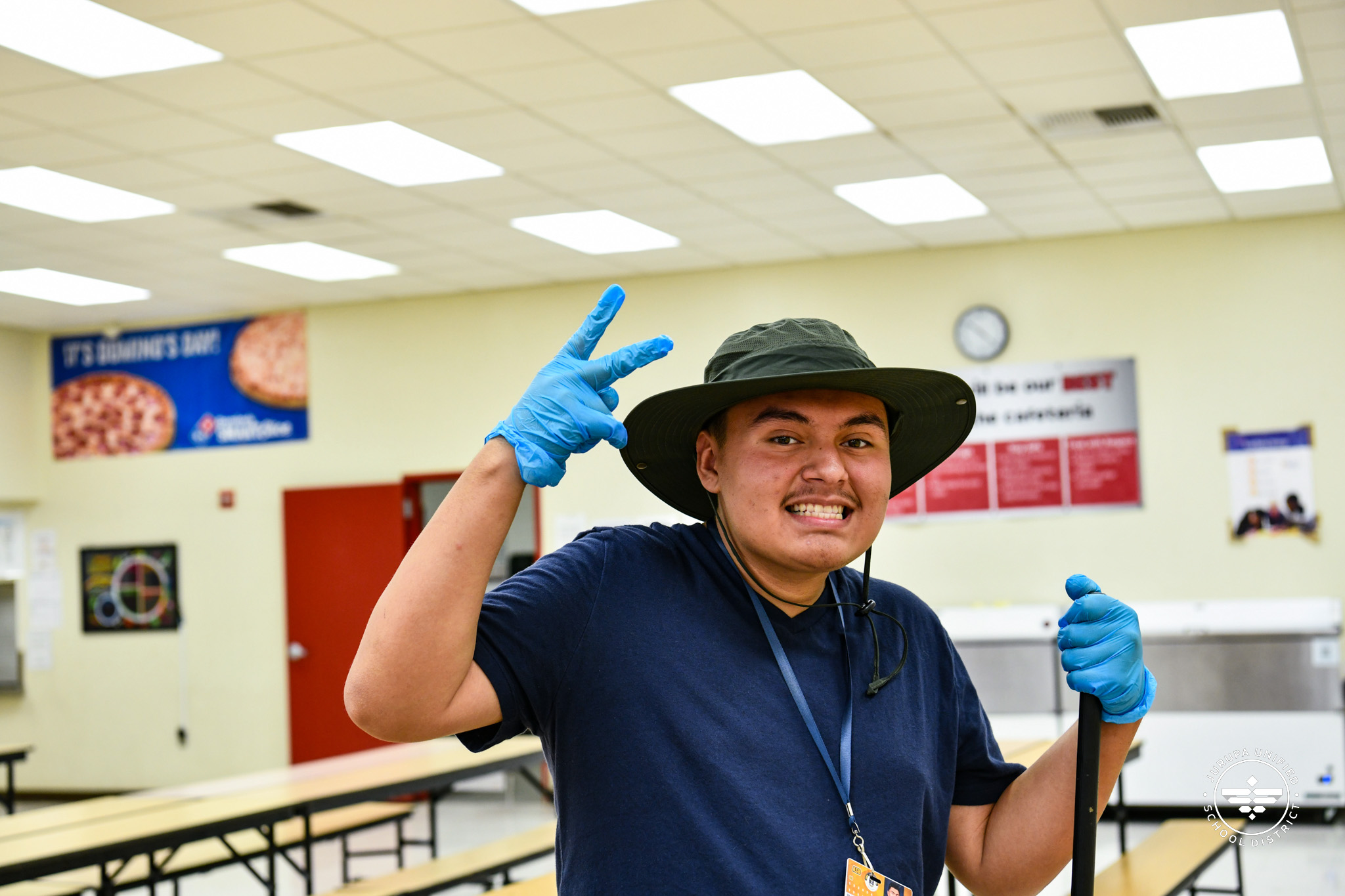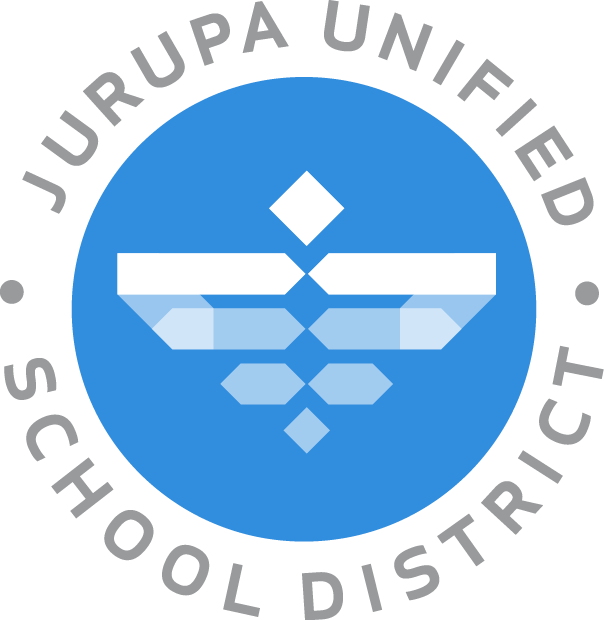Every other Thursday, a group of hard-working JUSD student volunteers heads to West Riverside Elementary.

The students assist with the beautification of the school. They also learn life skills such as communication, employment, and collaboration. Teachers call “thank you” as the team makes their way through the rambling campus.
The group is part of the Jurupa Unified Adult Transition program. This program, run through the Jurupa Unified Special Education Department, serves students aged 18-22 who have a disability and are on a non-diploma track. Rubidoux High School Education Specialists Geoffrey Holt and Adam Griffin help students to develop the skills they need to be independent.
“It’s been beneficial. I’m hoping it will help them as they transition,” Mr. Holt said. ”When they leave us…they will have skills to take care of themselves.”

Part of the program involves students helping out at JUSD campuses. Currently, students volunteer at West Riverside and Rustic Lane elementary schools. Additional campuses may be added in the future. Participation in projects such as the bi-monthly clean-ups helps students gain skills they can use in the real world to gain employment. More importantly, they practice “soft skills” that will help them throughout their lives.
Mr. Holt encourages all of his students to acknowledge those who say hello to them, shake their hands, or tip their hats and introduce themselves. “When they do leave us, they’re going to be with brand new people,” he said. “You’ve got to be able to express yourself and be able to feel comfortable enough that if you’re unsure of something or you know you’re doing the right thing you’ll let that person know.”

Mr. Holt started the JUSD Adult Transition program in 2009 and has led the program since. Students are part of the district’s Functional Skills program, which serves students from preschool through age 22. The adult program varies in size each year and has had as few as seven students and as many as 41. Currently, 25 students are enrolled. In addition to volunteer opportunities, students are connected to work opportunities and go on community outings to continue practicing essential life skills.
“If you’re with us for a year or four years, we want to make you more independent. If we can increase those skills it's going to make them have more opportunities when they leave us,“ said Mr. Holt. “It’s going to make them be able to do more on their own.”
An essential part of the program is the connection to community organizations that open opportunities for students. Some examples include the Opal Car Wash, Riviera Family Restaurant, and the Queen of Hearts Therapeutic Riding Center. “I think people see what we do is valuable,” added Mr. Holt.
Students say they love the program and feel pride in what they do.
“It makes me feel happy and better,” said Sebastian San Juan, 19.
“I feel proud of myself,” added Audiel Ayala Novoa, 20. “With the help of my friends, we can accomplish anything.”

